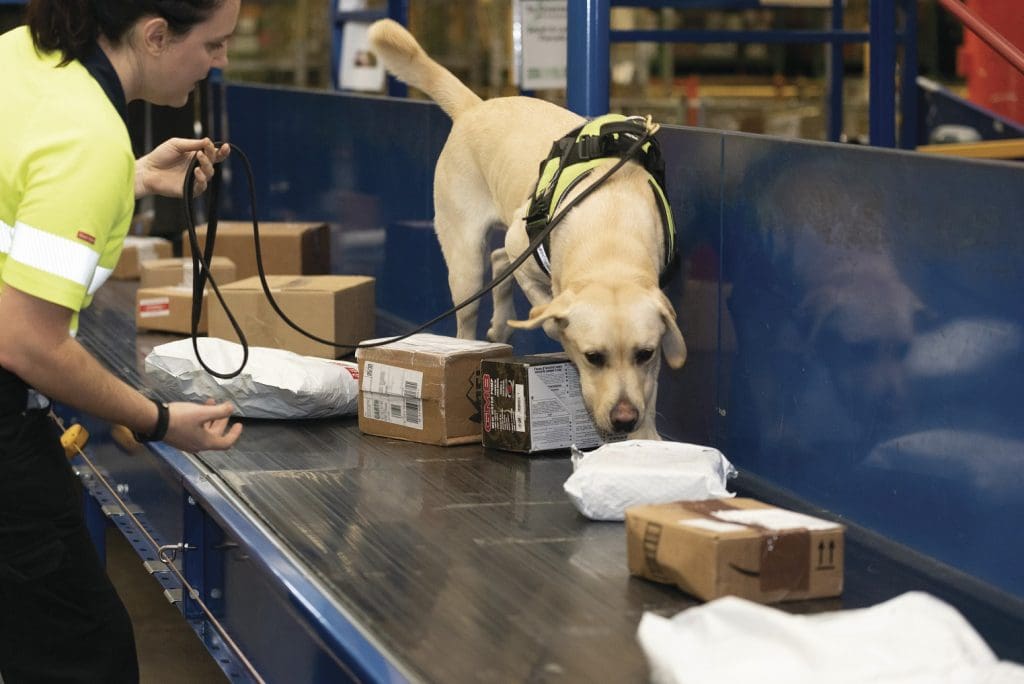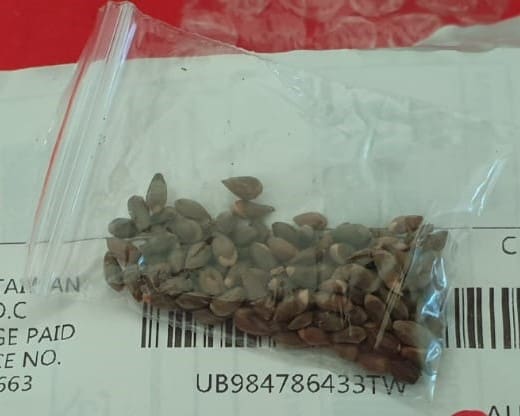
A biosecurity dogs checks parcels at Sydney mail centre.
AUSTRALIAN quarantine authorities have intercepted 45,000 risky seed parcels at Australia’s international mail centres in 2020, while reports of unsolicited seeds being received through the mail have also continued.
Acting chief plant protection officer, Dr Gabrielle Vivian-Smith, said the large volume of seed parcels were intercepted as they did not meet biosecurity conditions.
 “Seeds are most commonly intercepted biosecurity risk item at our mail centres and this year they made up 75 per cent of the total interceptions though the mail,” Dr Vivian-Smith said.
“Seeds are most commonly intercepted biosecurity risk item at our mail centres and this year they made up 75 per cent of the total interceptions though the mail,” Dr Vivian-Smith said.
“This is a concern for Australia, as seeds that arrive from overseas and do not comply with our biosecurity conditions can carry a range of risks.
“This includes invasive species or harmful plant diseases that could threaten backyard gardens, agriculture industries and the environment.
“We have detector dogs, biosecurity officers and x-rays in place to intercept parcels that may be a risk, but it is important to remember that we all have a role to play.”
Dr Vivian-Smith said anyone purchasing goods from overseas should follow the correct process, check they are permitted and if there’s any biosecurity conditions.
“Throughout the year, there has also continued to be ongoing reports of unsolicited seeds being received through the mail, with more than 260 reports so far,” she said.
“These reports are important and demonstrate the vital role the community plays in identifying and reporting biosecurity risks.
“Unsolicited seeds from overseas could also carry significant threats, so it is vital that they are reported to allow us to undertake the necessary investigations.
“If you receive unsolicited seeds through the mail, do your part to support Australia’s biosecurity and report it immediately.”
Source: Federal Government
For more information on buying seeds and other goods from overseas visit awe.gov.au/travelling/bringing-mailing-goods
To report a potential biosecurity breach visit awe.gov.au/report or call 1800 798 636.



HAVE YOUR SAY